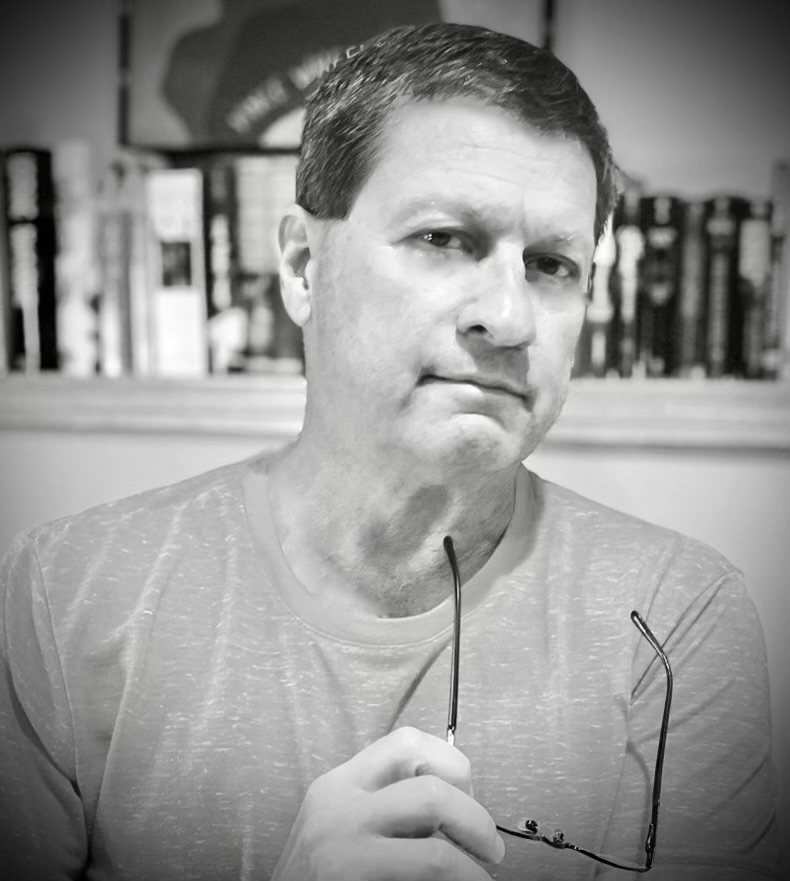Vince Wheeler
 I have always loved make-believe. As a kid, I spent more time than would be considered normal dreaming up characters and adventures and then trying to bring them to life through the use of whatever toys were handy. But of course, I eventually reached an age where I had to give up my toys. I could not, however, do the same with my overactive imagination, which continued to require an outlet. And so, when I was about eleven, I realized that the best way I had left to vent my creative thoughts was to write down the stories that played in my head.
I have always loved make-believe. As a kid, I spent more time than would be considered normal dreaming up characters and adventures and then trying to bring them to life through the use of whatever toys were handy. But of course, I eventually reached an age where I had to give up my toys. I could not, however, do the same with my overactive imagination, which continued to require an outlet. And so, when I was about eleven, I realized that the best way I had left to vent my creative thoughts was to write down the stories that played in my head.During my adolescent years, I wrote stories for fun and came to admire many writers, who, at various points, I tried to emulate. I was inspired by the works of such literary legends as Joseph Conrad, Jack London, and Ernest Hemingway, and I also took interest in the ideas of science fiction writers such as Isaac Asimov, Arthur C. Clark, H.P. Lovecraft, and Philip K. Dick, as well as the television concepts of Rod Serling. Even now, I sometimes still find myself, late at night, in front of a television watching an old episode (any episode) of The Twilight Zone. And I think some aspects of Serling's creation must have rubbed off on me, since my first novel, The Things of Man, has been compared to the type of stories that were featured on Serling's classic television series.
As a youg man, my interest in being a writer continued. But then, one has to make a living. I earned a degree in journalism and then went to law school, after which, for many years, I worked as an attorney, litigating and trying lawsuits. Courtroom work was very exciting, but I could not put aside the idea of being a writer of fiction. So, in addition to my legal work, I began spending long hours on a novel, which eventually became The Things of Man. The book saw publication in 2016 and, unbeknownst to me, my publisher entered it in the 2017 Independent Publisher Book Awards, where it was presented the silver medal for best fiction in the U.S. Midwest.
After the publication of The Things of Man, I decided to back away from the practice of law to allow myself more time for writing. I had, by then, discovered a mysterious real-life fifteenth-century book known as the Voynich Manuscript, which would form the conceptual basis for my next novel, The Stavros Manuscript. The publishing world calls The Stavros Manuscript a literary or psychological thriller, but actually, if you're looking for a book with elements of romance, mystery, the supernatural, Freudian psychoanalytic theory, Kafkaesque worlds, and a bit of medieval history . . . well, it's all in there. Because of its use of dreamworlds, the book has been likened to the movie Inception—and I wouldn't necessarily argue with that. But considering the "split-personality" psychosis of the book's main character, I think some readers might also recognize parallels to Chuck Palahnuik's novel (and the subsequent movie) Fight Club. In any event, Stavros is a slightly unconventional thriller that takes more than a few unexpected twists (some of which even I didn't see coming). It was a fun book to write, and I hope it will be just as much fun for people to read.
Meanwhile, I'm working on another book, which, to quote Monty Python, will be "something completely different."
Meanwhile, I'm working on another book, which, to quote Monty Python, will be "something completely different."

